Discussion Focused on Research, Security, and Future Action
Presswatch Report Cox’s Bazar, 26 May:
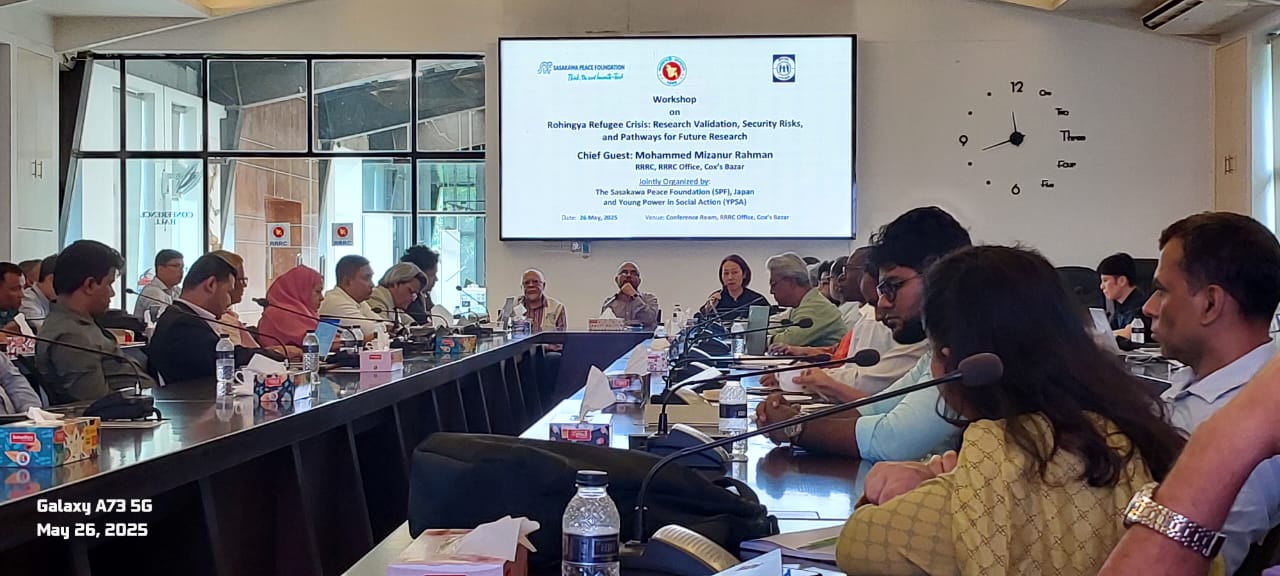 A significant workshop on the Rohingya refugee crisis was held in Cox’s Bazar titled “Rohingya Refugee Crisis: Research Evaluation, Security Risks, and Future Research Directions”. The event was jointly organized by Japan’s Sasakawa Peace Foundation (SPF) and Young Power in Social Action (YPSA).
A significant workshop on the Rohingya refugee crisis was held in Cox’s Bazar titled “Rohingya Refugee Crisis: Research Evaluation, Security Risks, and Future Research Directions”. The event was jointly organized by Japan’s Sasakawa Peace Foundation (SPF) and Young Power in Social Action (YPSA).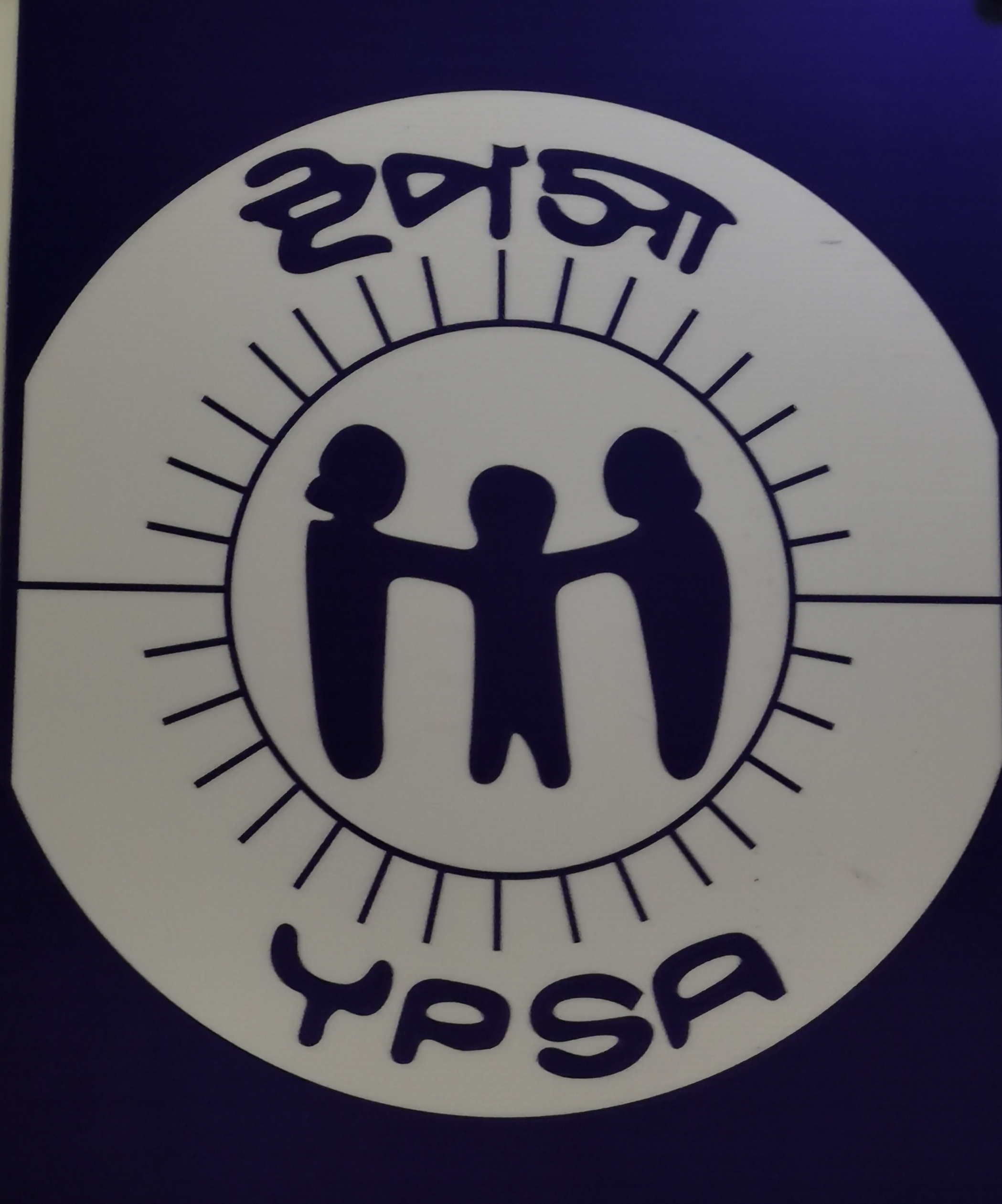
The Chief Guest of the event was Mohammad Mizanur Rahman, Refugee Relief and Repatriation Commissioner (RRRC). He stated, “The Rohingya population is increasing day by day. This poses a threat to our national security, economy, and society. Bangladesh is a small and densely populated country, so it can no longer bear this burden. The only solution is their prompt repatriation to their homeland.”
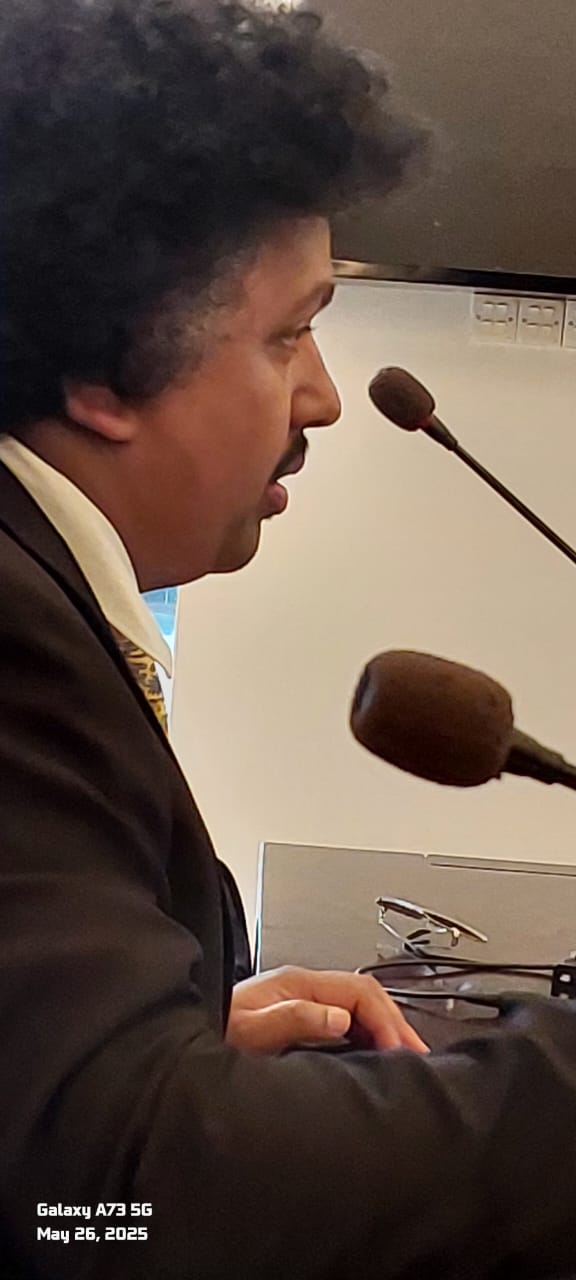 At the beginning of the seminar,
At the beginning of the seminar, 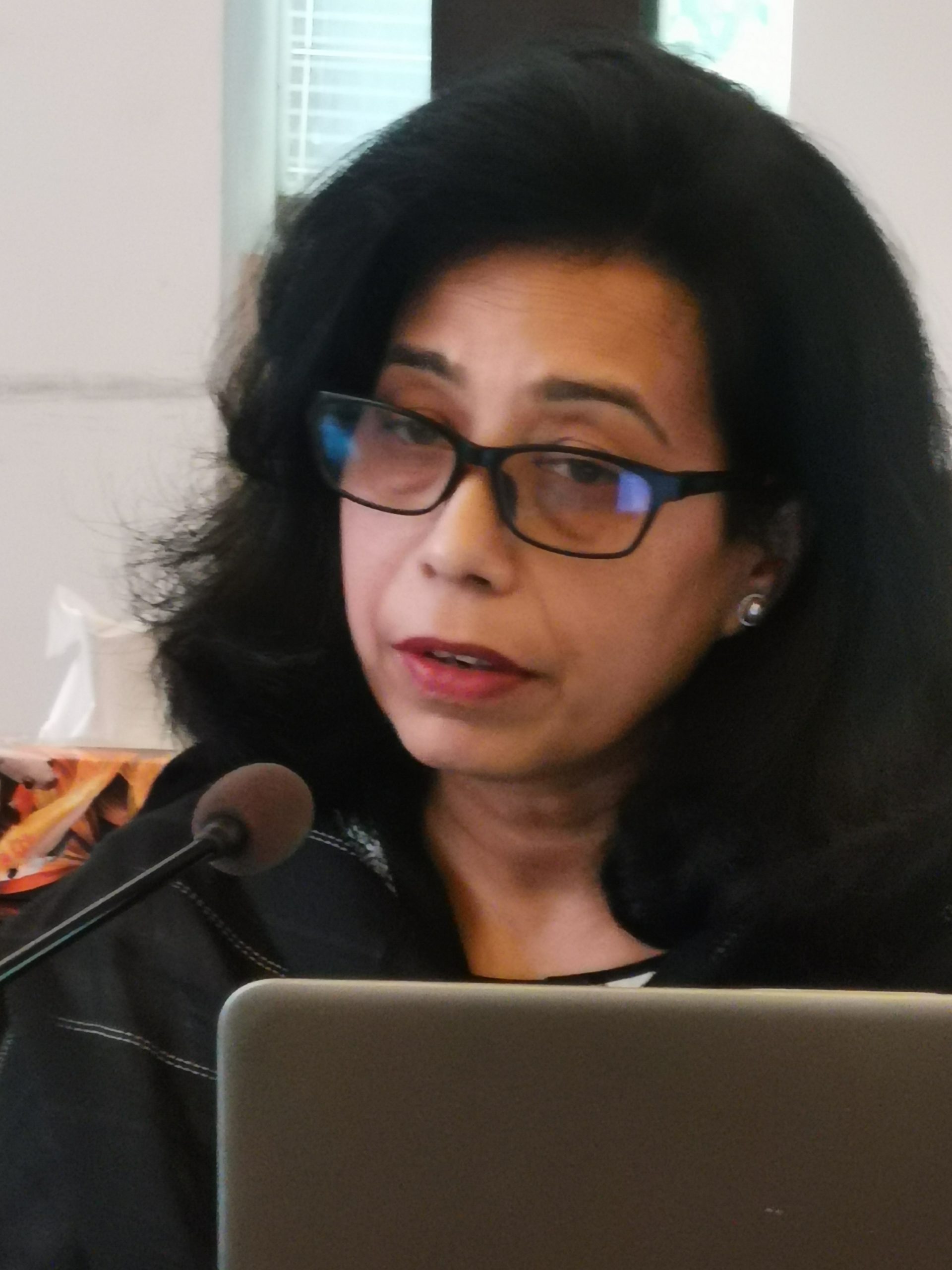 Dr. Avanti Harun highlighted the environmental, social, and security damages caused by the Rohingya crisis. She noted that while a segment of the Rohingya community is involved in crimes such as drug and arms trafficking, they themselves are also victims of abuse and insecurity.
Dr. Avanti Harun highlighted the environmental, social, and security damages caused by the Rohingya crisis. She noted that while a segment of the Rohingya community is involved in crimes such as drug and arms trafficking, they themselves are also victims of abuse and insecurity.
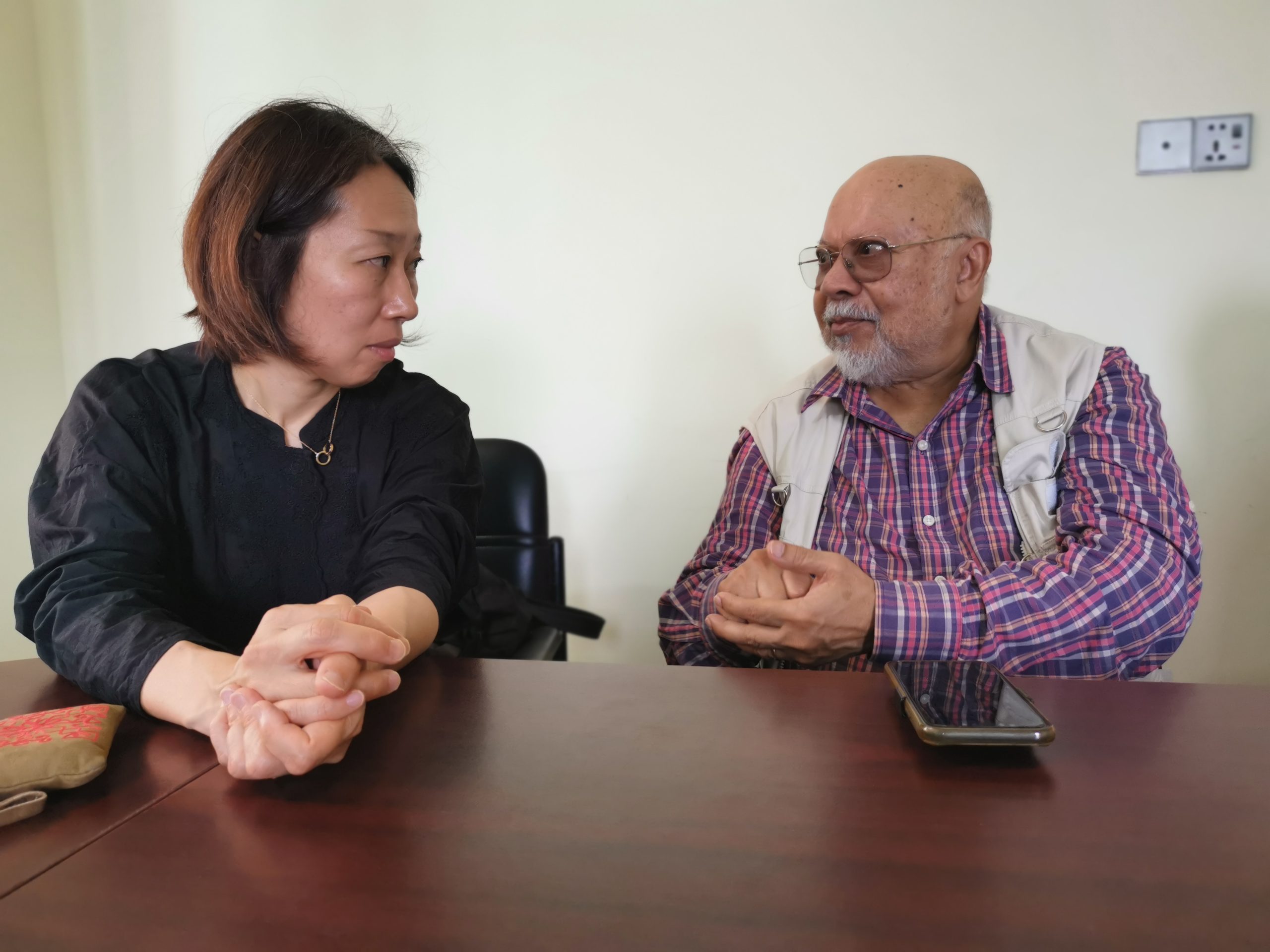 The keynote paper was presented by Dr. Imadul Islam, who stated that the Rohingya population is living under inhumane conditions. He expressed concern that they are becoming entangled in superstitions and criminal activities, which poses risks to national security and the social fabric. He emphasized the need to ensure a humane and regulated life for the Rohingyas while taking initiatives for their peaceful repatriation.
The keynote paper was presented by Dr. Imadul Islam, who stated that the Rohingya population is living under inhumane conditions. He expressed concern that they are becoming entangled in superstitions and criminal activities, which poses risks to national security and the social fabric. He emphasized the need to ensure a humane and regulated life for the Rohingyas while taking initiatives for their peaceful repatriation.
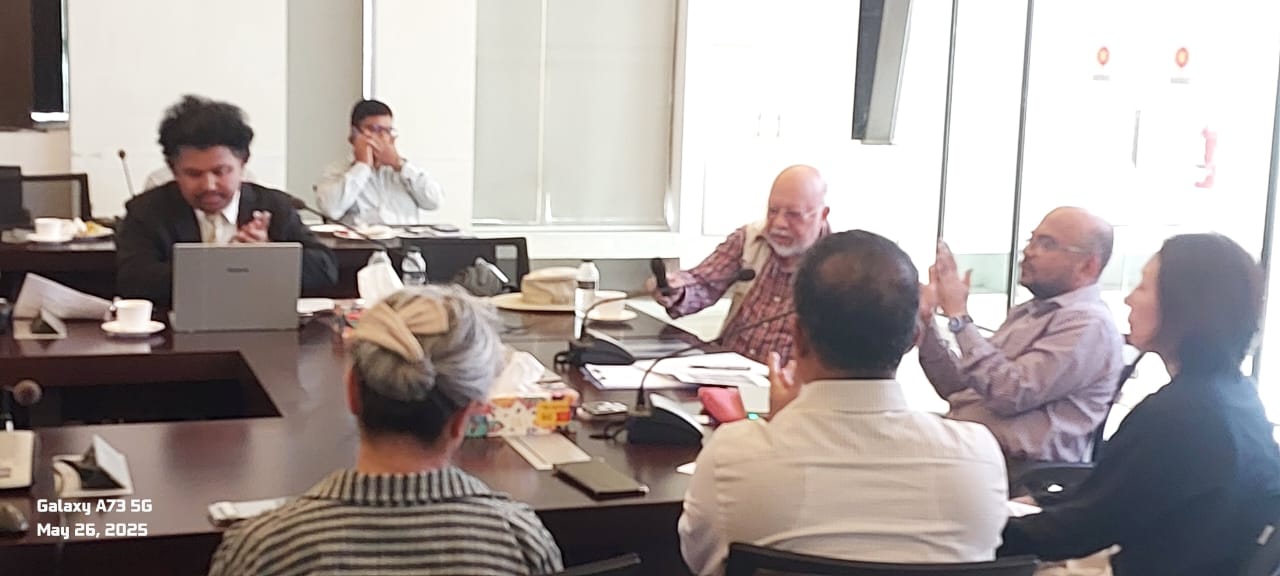 Ambassador Tariq Karim, speaking as an expert, noted that the Rohingya crisis is not just a national issue for Bangladesh but a major challenge to international security.
Ambassador Tariq Karim, speaking as an expert, noted that the Rohingya crisis is not just a national issue for Bangladesh but a major challenge to international security. 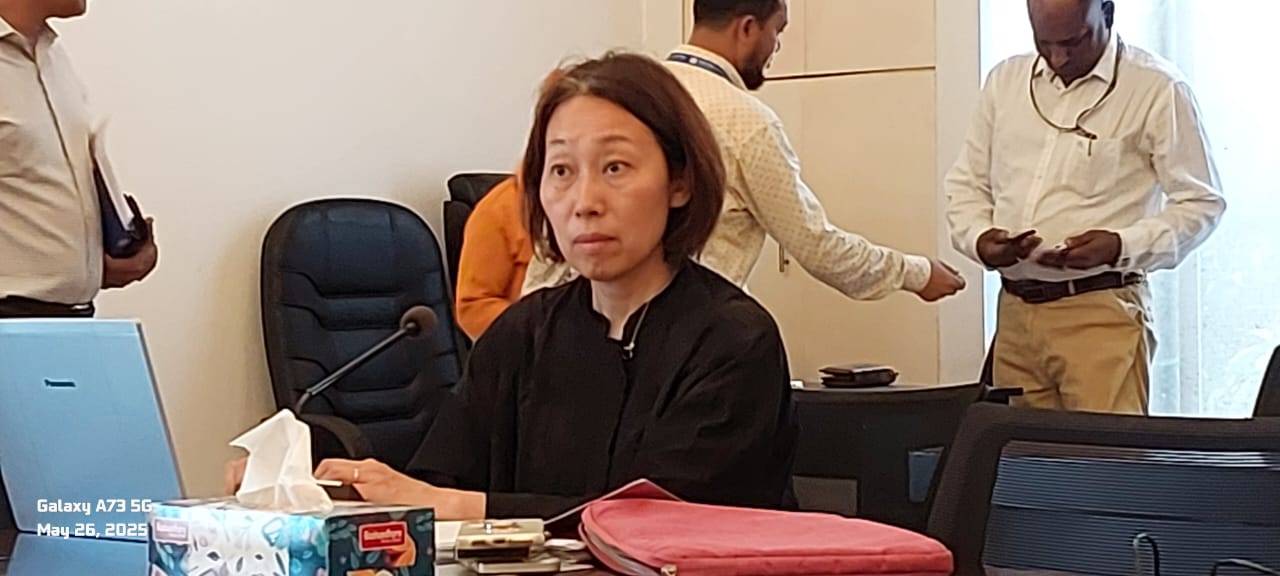 He called for national unity and avoidance of political divisions on this matter.
He called for national unity and avoidance of political divisions on this matter.
The workshop was chaired by Dr. Nasrullah, a professor at the University of Chittagong. Among the attendees were Professor Dr. Dipu Siddiqui, Dean of the Faculty of Arts and Social Sciences at Royal University of Dhaka; officials from YPSA; representatives from BRAC, UNHCR, and other international organizations; and Neelima Akter Chowdhury, Head of the organization ‘Agrojatra’.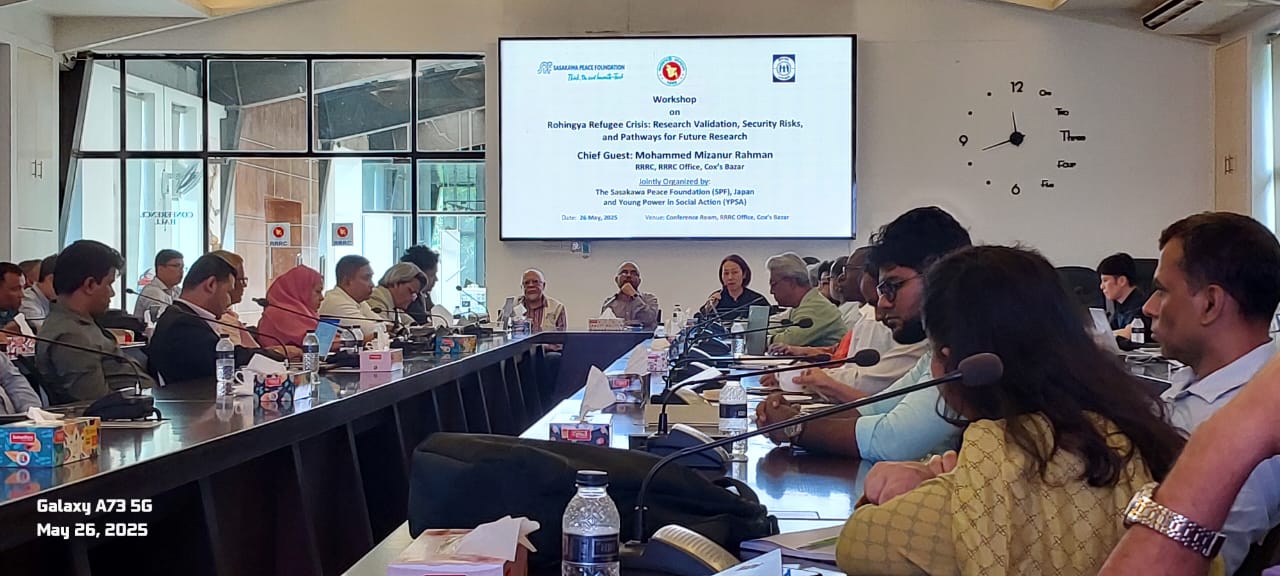
The two-part workshop began with an introductory and exchange session at the YPSA office, followed by a research presentation and discussion session held at the RRRC office.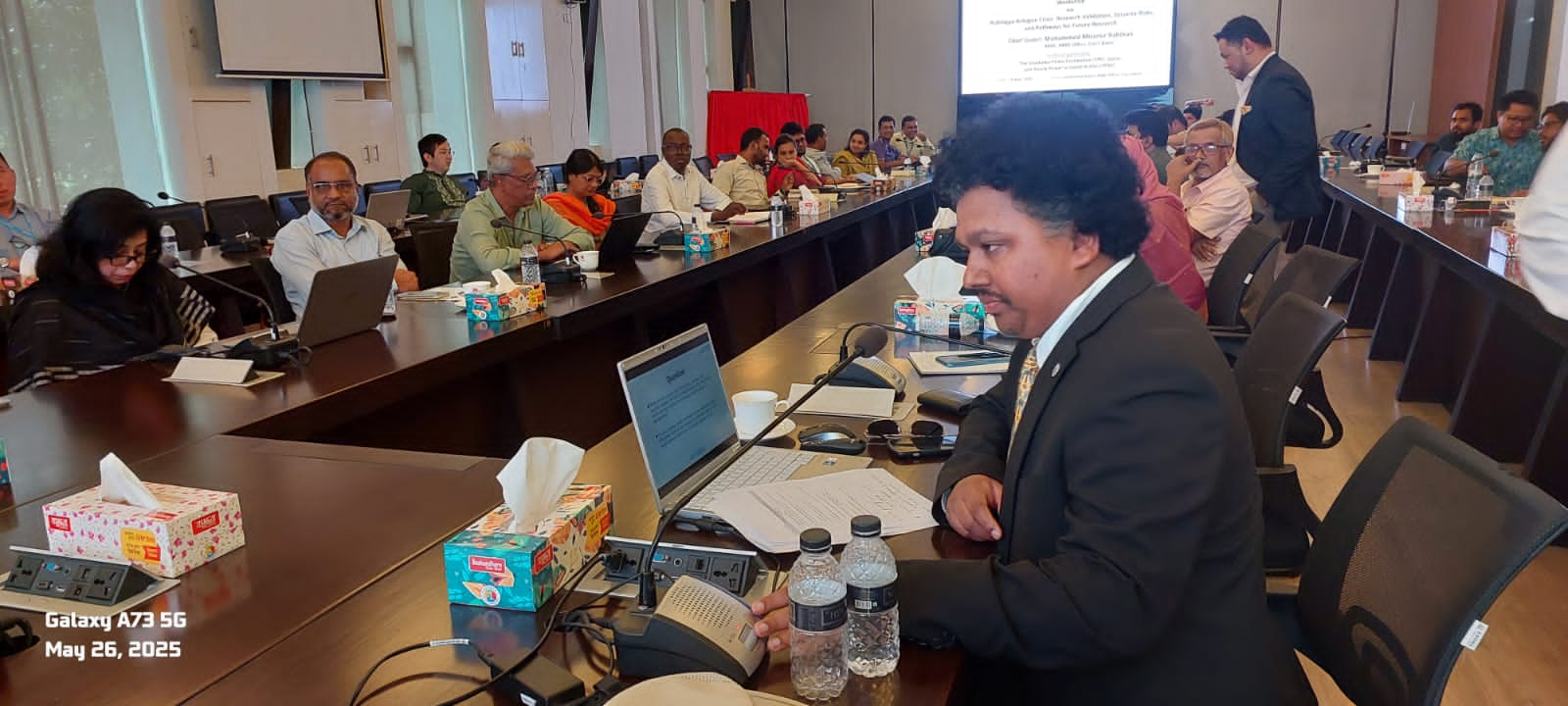
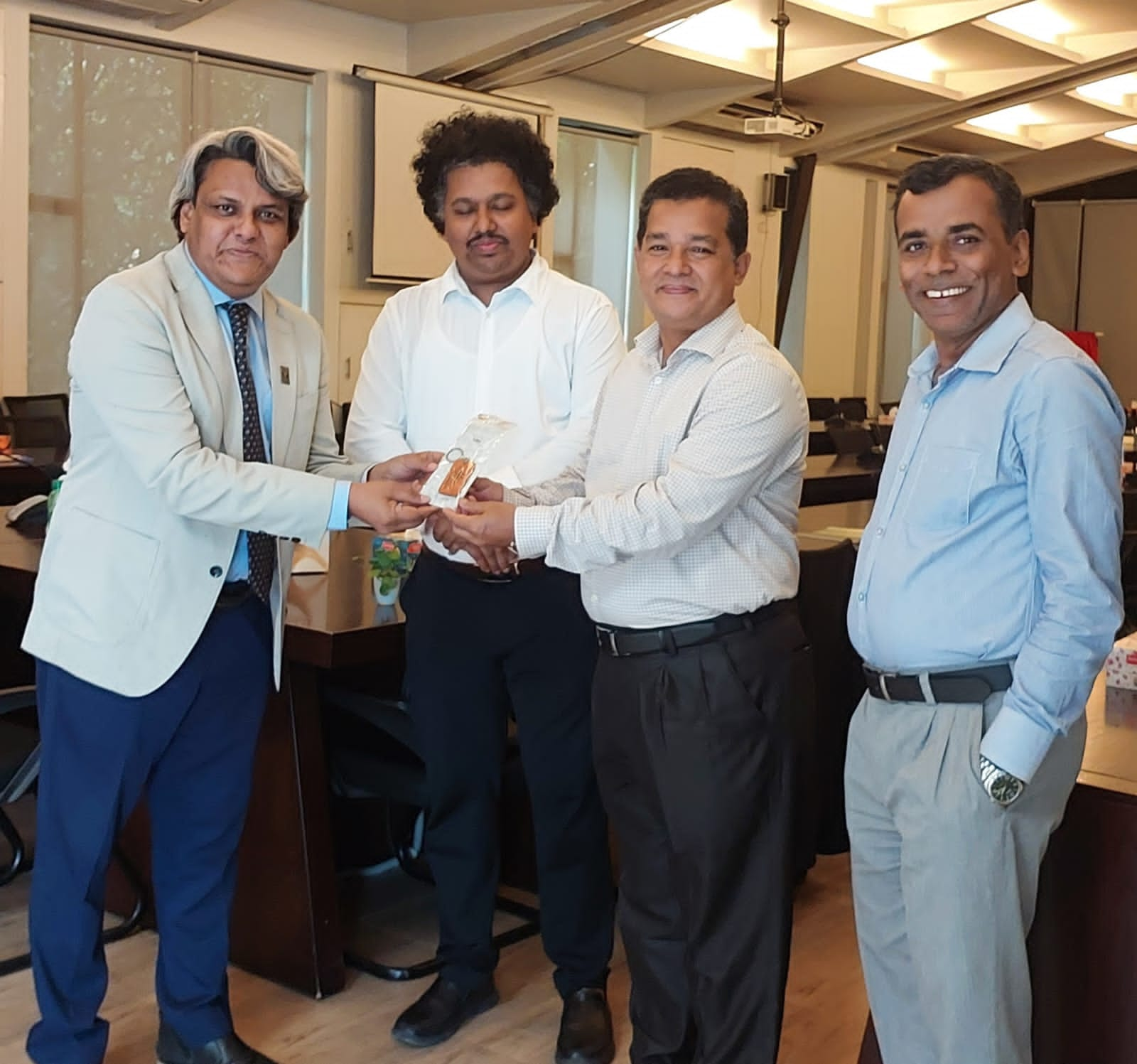
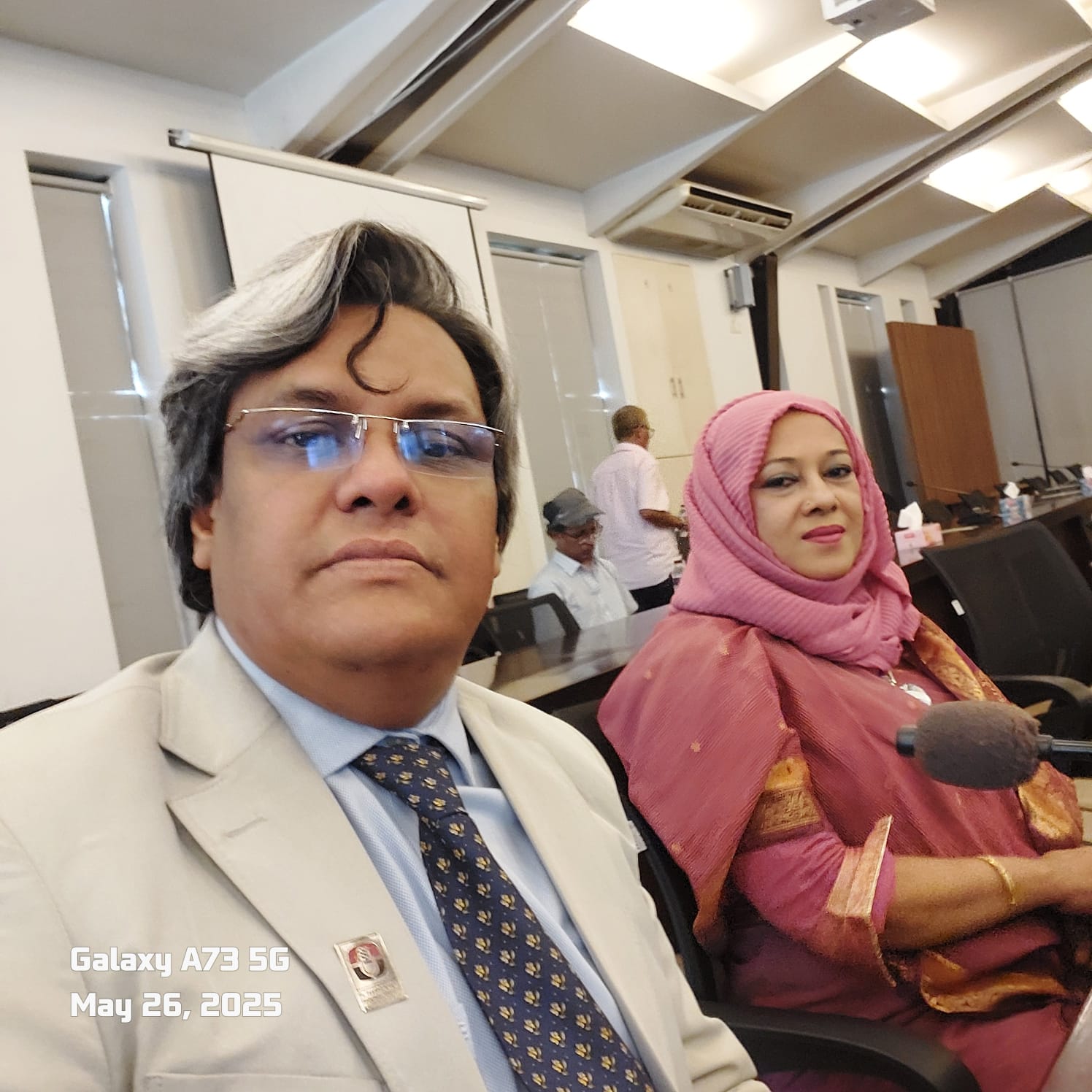
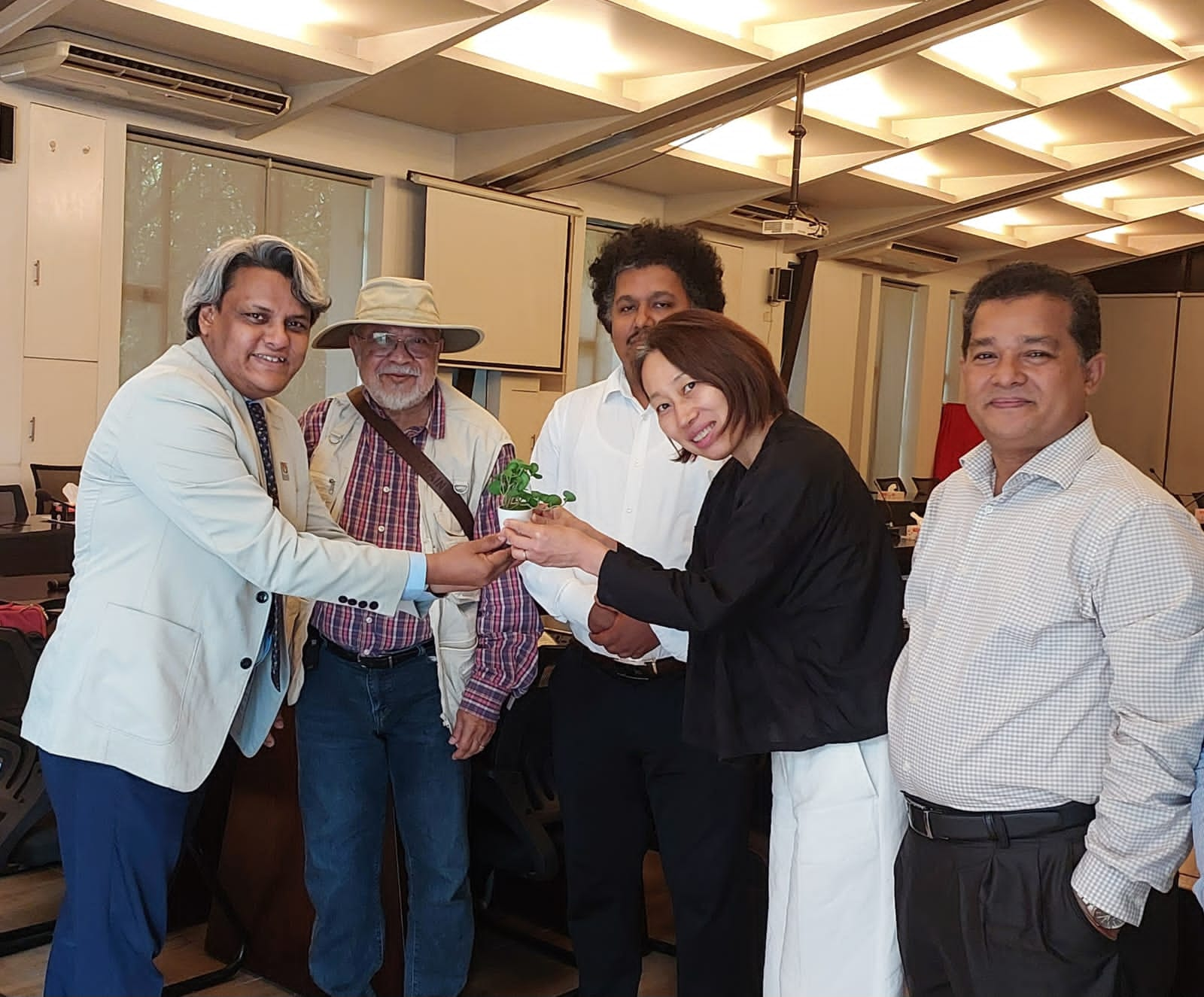
At the conclusion of the event, speakers called for international cooperation and swift, effective action to find a permanent solution to the Rohingya crisis.